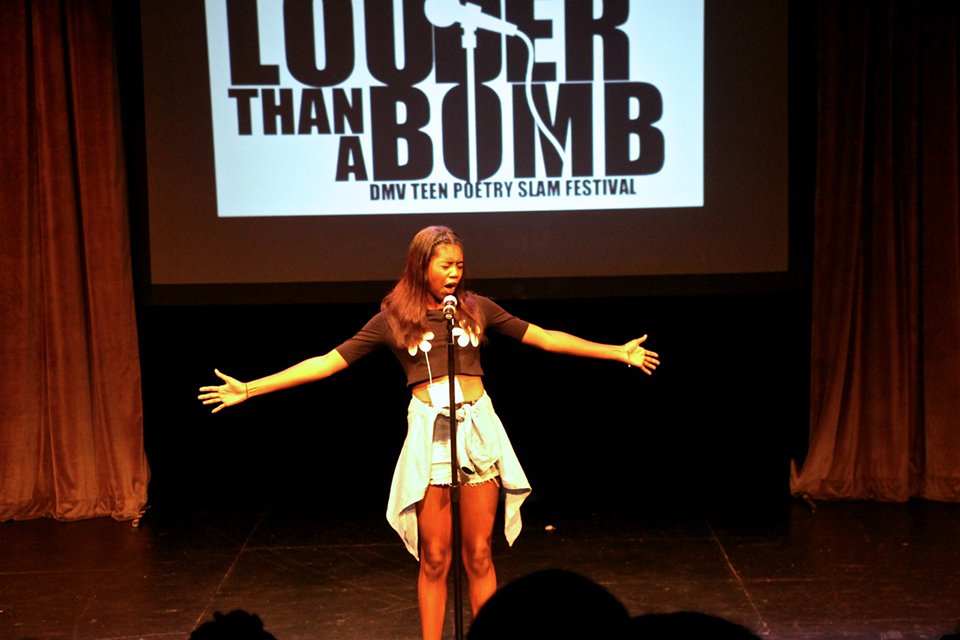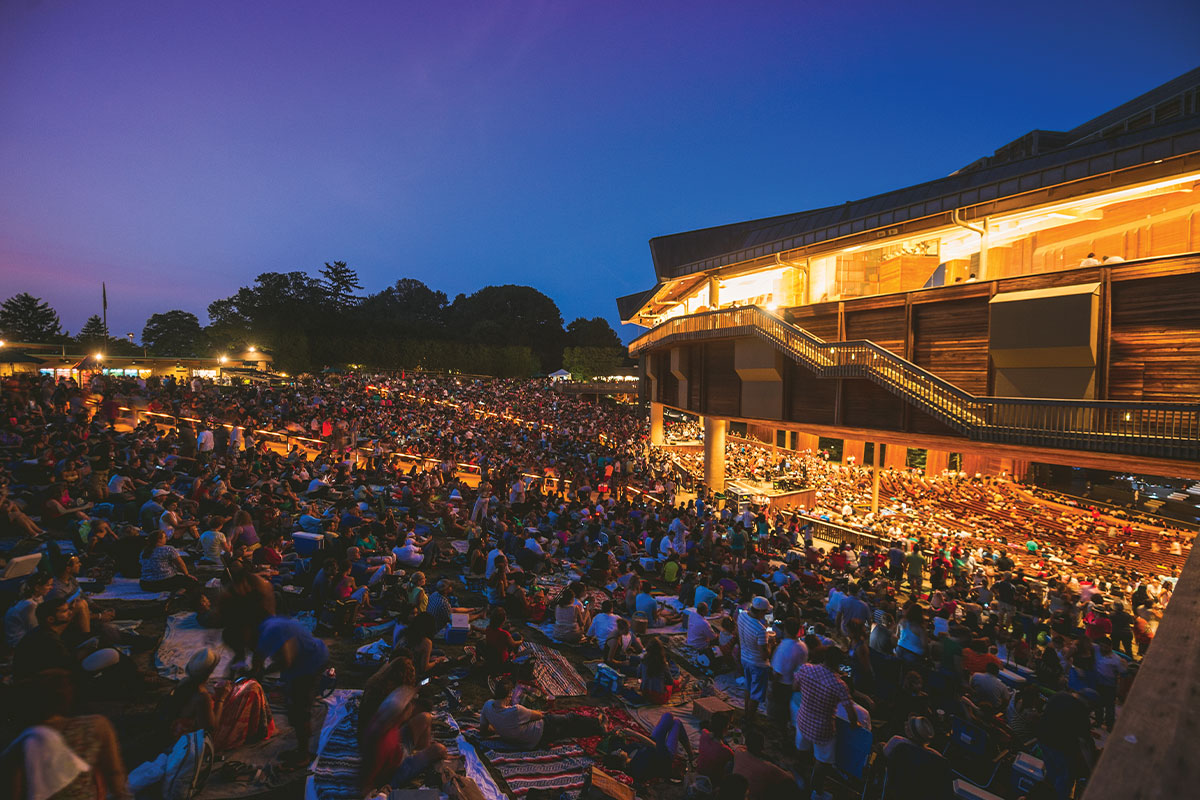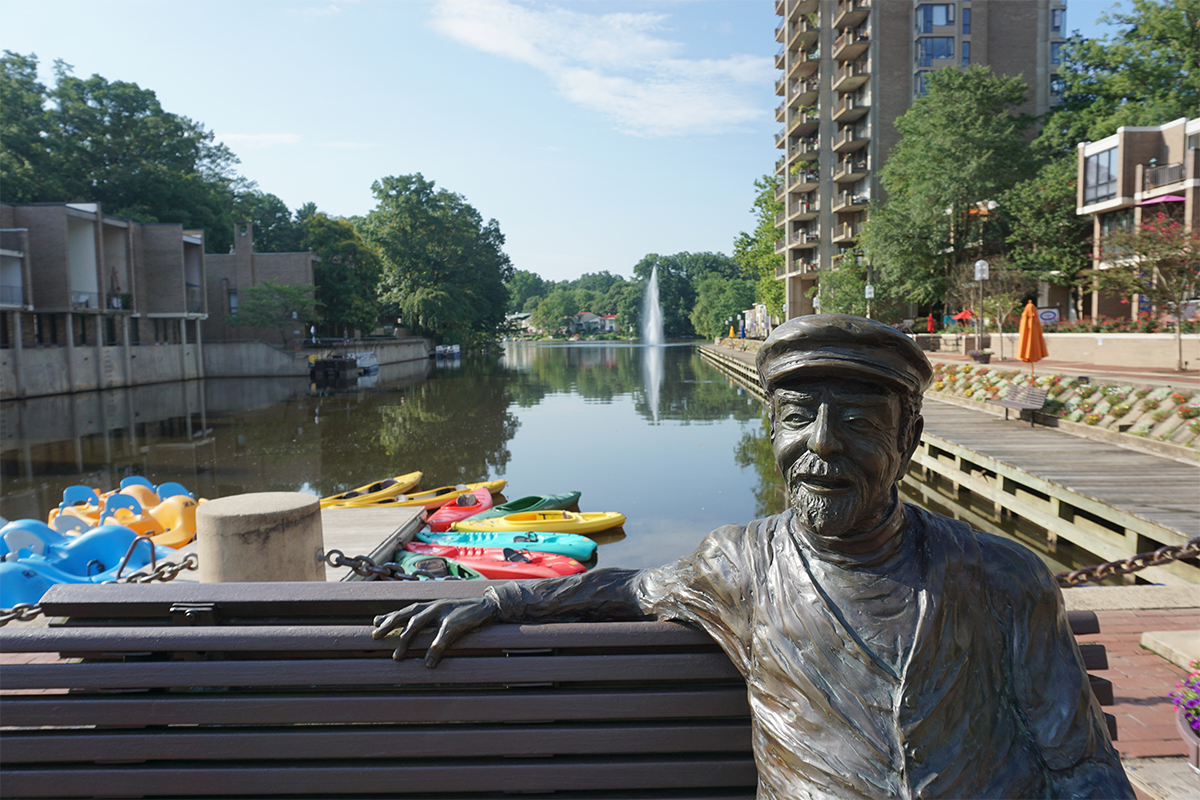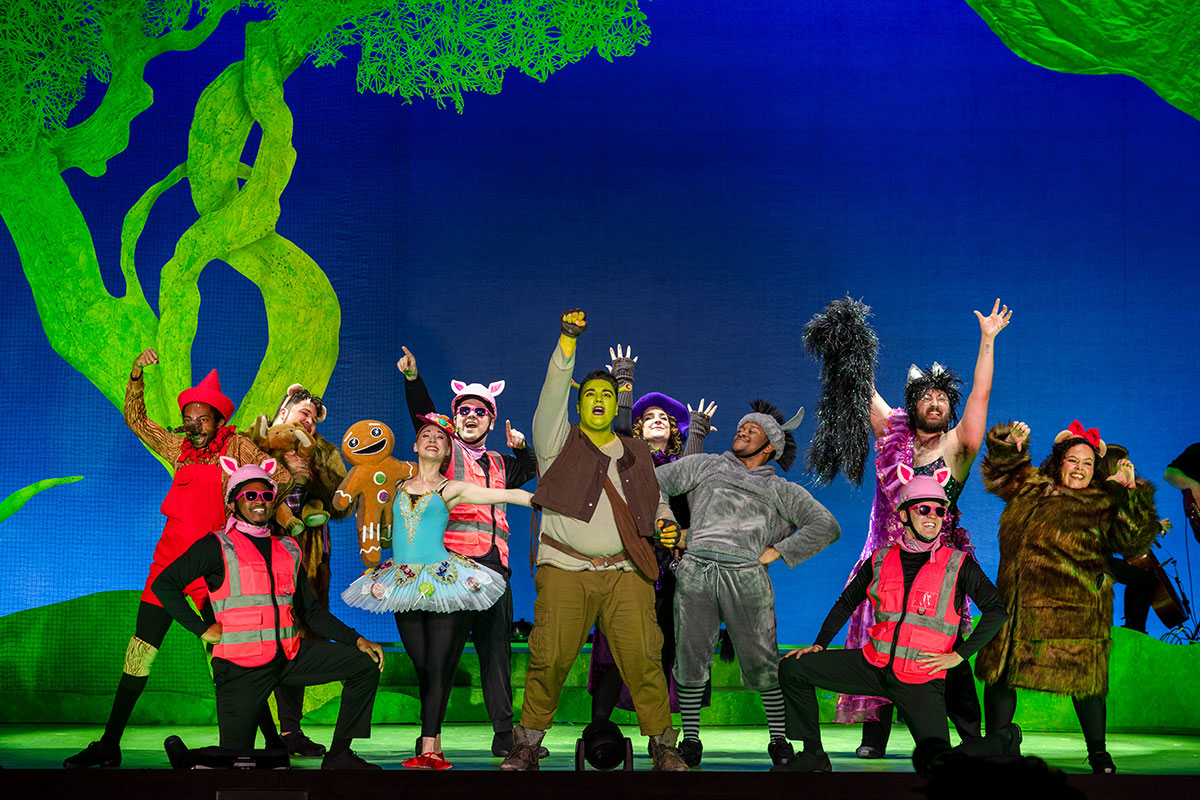Local organizations use poetry as a tool for teens to express themselves.
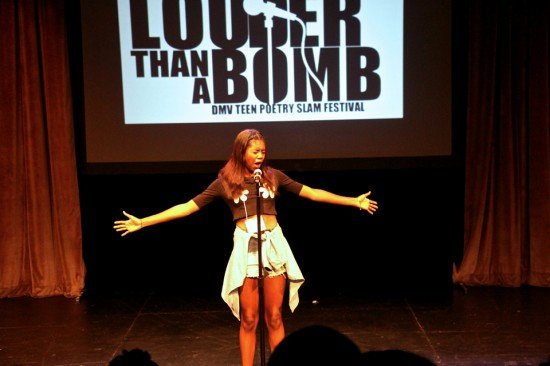
The esteemed Romantic poet William Wordsworth defined poetry as “the spontaneous overflow of powerful feelings.” There is perhaps no more cogent example of overflowing feelings than the mind of the average high school student. Caught in a quagmire of emotion, most teenagers struggle to express their feelings in constructive ways.
Enter Brian Hannon.
In 2008, while an English teacher at Hayfield Secondary School in Alexandria, he started a spoken-word poetry club and enlisted the help of forensics coach Joseph Green. Soon, the students wanted to compete in a poetry slam, but few local high schools had poetry clubs like Hayfield’s. In response to the “extreme need” Green saw, in 2009, he and Hannon created poetryN.O.W., an organization that develops poetry curricula for other teachers.
“[In] every school we went to, we found young people who wanted to be a part of it,” says Green. Today, poetryN.O.W. is part of Split This Rock, a D.C.-based nonprofit whose mission is to foster “socially engaged poets.”
Split This Rock executive director Sarah Browning describes poetry as both a coping mechanism to quell adolescent angst and a platform to exchange solutions to societal ills. Browning notes poetry’s ability to foster communication and understanding across boundaries of race, sex and background.
“Poetry … works as a tool to create empathy, which is the first step to understanding groups of people you might not innately have something in common with,” says Green.
Students unfamiliar with spoken word don’t always understand how cathartic it can be. “A lot of times, students just have this perception of poetry that either they do it by themselves, it’s all written down, or it’s [performed at] a coffeehouse, snapping your fingers,” says Hannon.
PoetryN.OW., in conjunction with Split This Rock, works to change this misconception by hosting two annual slam poetry festivals, Hyper Bole and Louder Than A Bomb. In the former, students compete individually, while the latter is a team effort. (Louder Than A Bomb takes its name from a 1988 Public Enemy song of the same name from the seminal album It Takes a Nation of Millions to Hold Us Back, noted for its scathing social commentary.)
Green recalls many times when students and audience members have broken down during performances due to the visceral reactions that their words elicit. It’s not always easy for the teens to allow themselves to be vulnerable and let their emotions bleed out onto the stage. But all wounds need air to be fixed, and poetry, so it seems, lets students expose their pain and anger to the elements and let them heal.
April is National Poetry Month
To celebrate, check out these two local poetry festivals:
• Split This Rock Poetry Festival
The four-day festival centers on social justice-themed poetry from around the world
April 14-17
• Louder Than a Bomb
The weeklong festival features teams of youth poets from D.C., Maryland and Virginia
April 30-May 7

